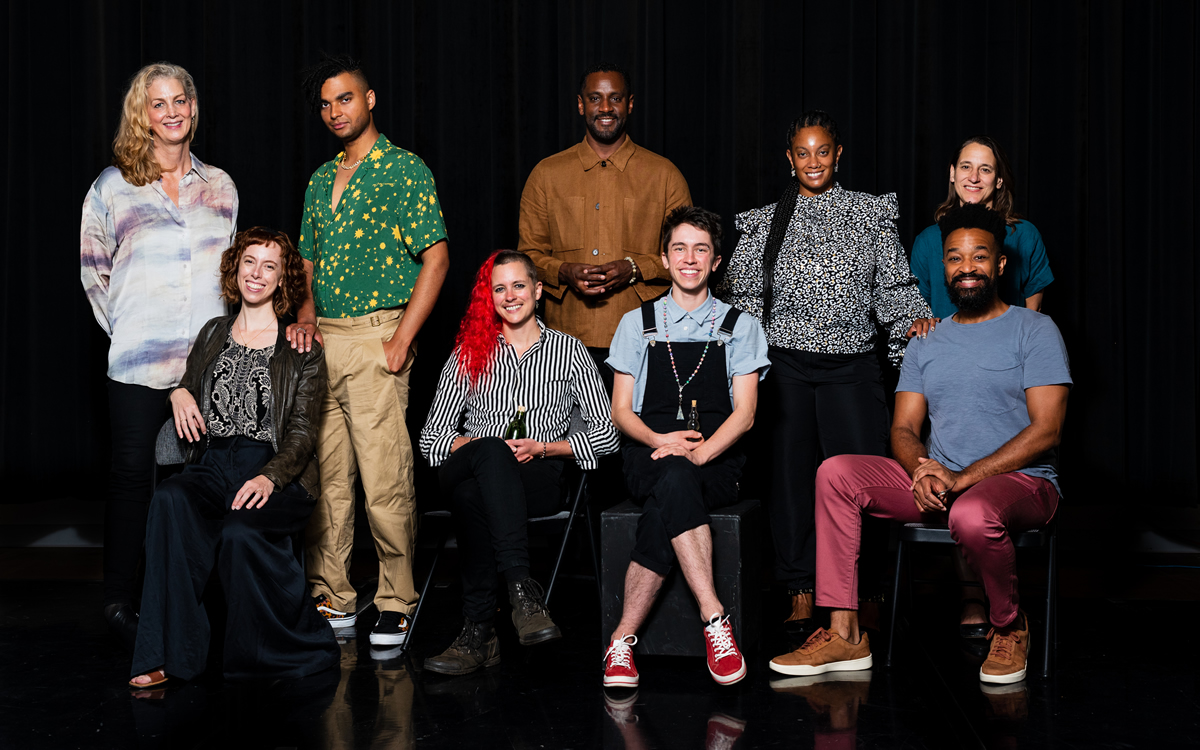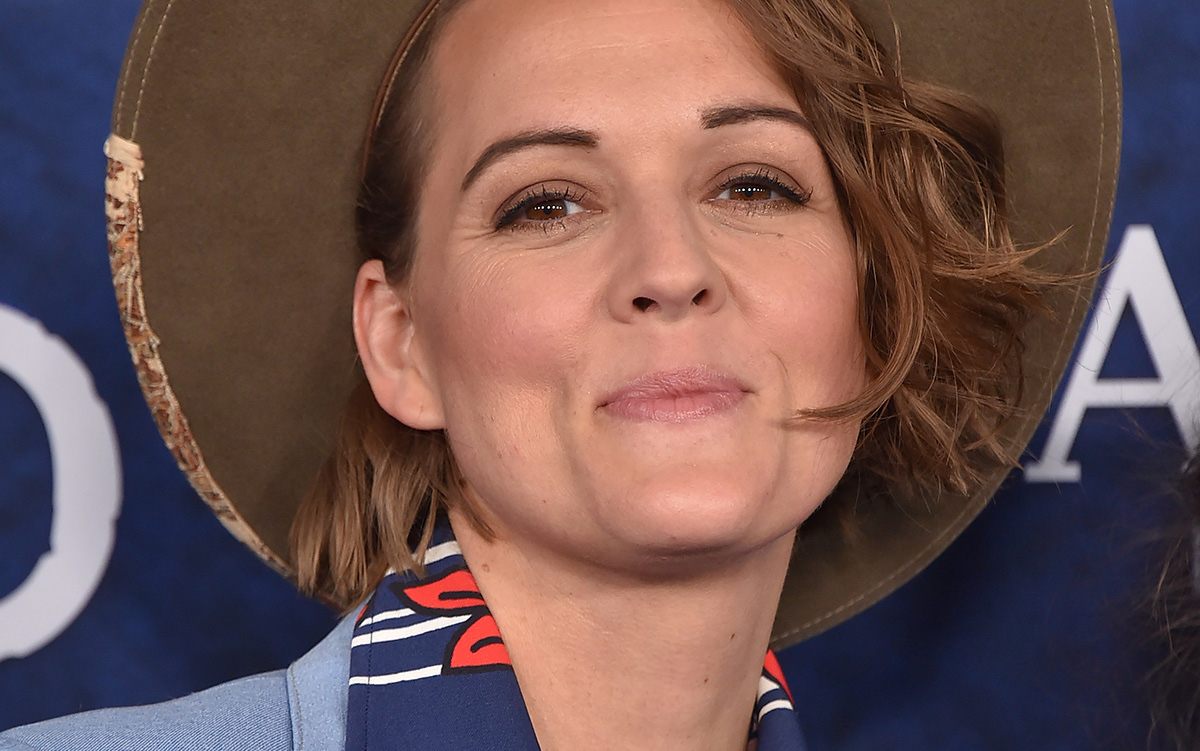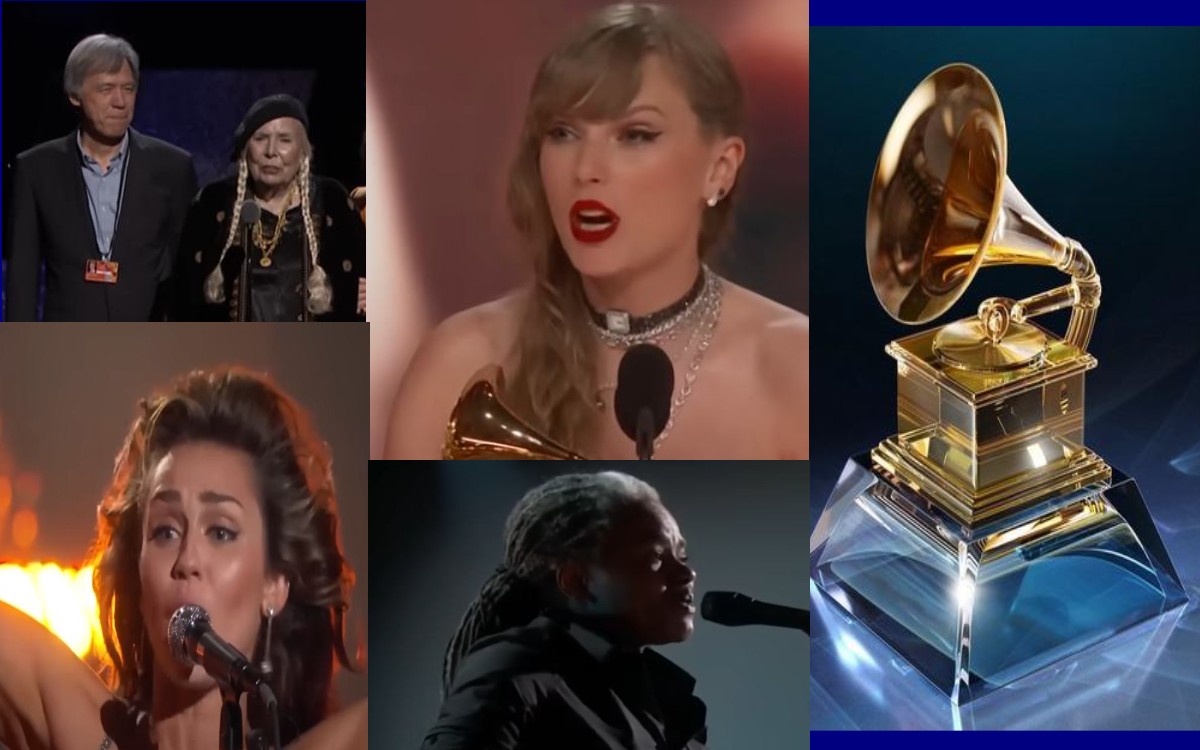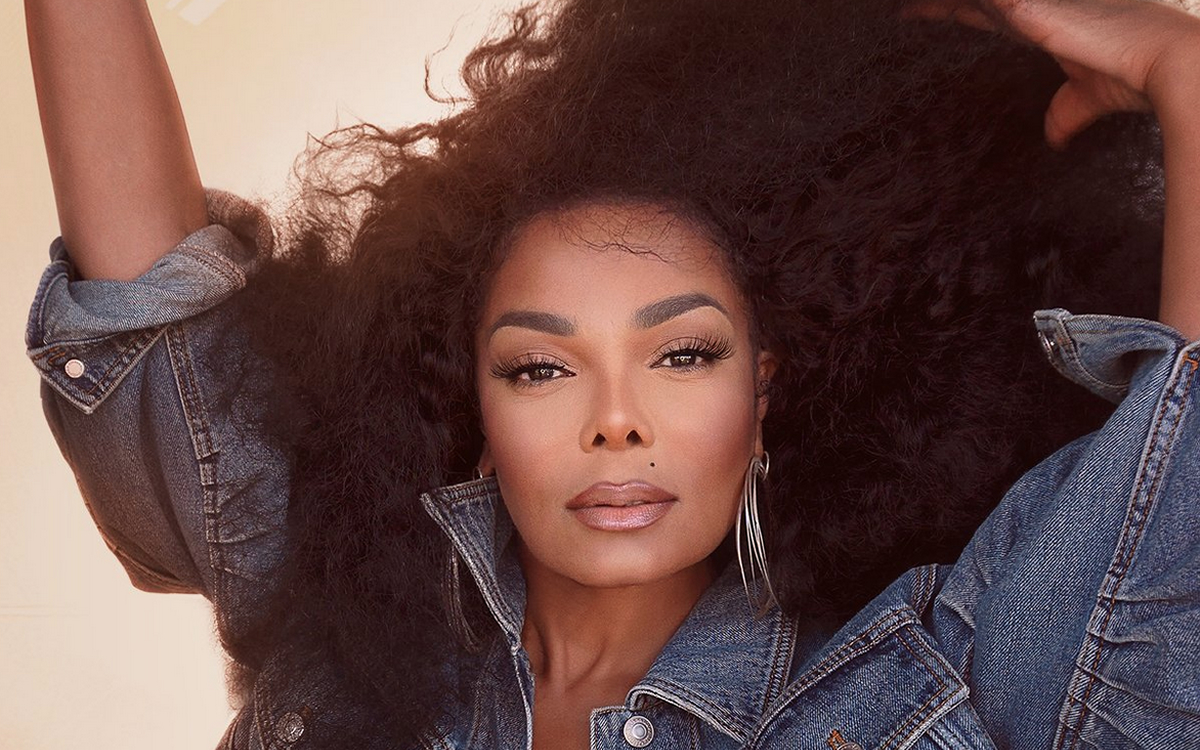Music & Concerts
New opera chronicles beauty and power of trans liberation
Don’t miss ‘What the Spirits Show’ at Washington National Opera

The value of the support of family. The oppression of trans identity. The euphoria and spiritual power of trans liberation. These themes and more are woven into a poignant new opera, “What the Spirits Show,” by composer-librettist team Silen Wellington and Walken Schweigert.
Their collaboration is the product of the Washington National Opera’s American Opera Initiative (AOI). Now celebrating its 10th season, AOI pairs talented creatives to develop a short, one-act opera, performed by WNO’s Cafritz Young Artists. Along the way, the creative teams receive invaluable mentorship from some of the best in the business.
This year’s AOI performance takes place on January 21, 2023 at the Terrace Theater of the Kennedy Center. Also on the program are Oshun, with music by B.E. Boykin, and libretto by Jarrod Lee—a journey of sacrifice, self-love and redemption displayed in the face of those who would deny it. And Bubbie and the Demon, with music by Jens Ibsen and libretto by Cecelia Raker—a mashup of opera and heavy metal, which finds that Bubbie has filled the void of Covid isolation by solving as many word searches and crosswords as possible, but accidentally summoned a demon.
The Washington Blade caught up with librettist Walken Schweigert and composer Silen Wellington, the co-creators of What the Spirits Show, to learn more about this short opera and its powerful themes.
BLADE: Congratulations on creating the original work, “What the Spirits Show.” Can you share more about the opera’s plot and musical style?
WALKEN SCHWEIGERT: It’s an opera about trans liberation, but also about friendship and the support of family. There are four characters: the protagonist, named Calamus, is a shape-shifting youth who takes a magical elixir to be themselves. Their shape-shifting is an allegory for transness. When you first meet Calamus, they have already been taking this medicine, so you meet Calamus in the fullness of themself. But then this politician enters the scene and he outlaws the elixir, claiming that it’s immoral. But the beautiful thing is that Calamus’ mother stands up for them, and because of that they both get thrown in jail. Since Calamus has stopped taking the elixir, they basically begin detransitioning. But then their friend, Sylvan, is able to sneak in some elixir to Calamus. And the strength and the power of Calamus coming back to themself is so powerful that it destroys the jail and traps the politician under the rubble, and Calamus and their mother are able to escape. It’s a moment of joy, it’s a moment of euphoria, it’s a moment of self-reclamation.
SILEN WELLINGTON: The characters themselves each have their own musical language. And musically, each scene is its own world. The first scene is all about Calamus and their shape-shifting. The music is very whimsical, beautiful and romantic. The second scene is all about the politician. His music is much more circus-like; almost like a lopsided march. In the third scene, when Calamus and Aurora are in the prison, the music is a little bit more restricted, but it still hearkens back to some of that fantastical and musical language from the opening scene. The fourth scene is really where it all comes together. Sylvan comes and helps Calamus break out of jail, so the music is more driving and rock-influenced, because in Walken’s words, Sylvan is Calamus’s “anarcho-punk friend.” And then finally, once Calamus returns to their power, we return to the fantastical music at the beginning.
BLADE: Can you share why you wanted to write this opera? Have its themes affected you personally?
WELLINGTON: I wouldn’t write this opera if it didn’t affect me personally. That could probably be my artist statement! It’s the subtext of why I make art. I write about things that personally affect me and I always have.
In my own journey to figuring out that I was trans and nonbinary, it took me a while to find self-acceptance and then find self-love. I wanted to write something that gave space for that love. I knew I was queer from a pretty young age, but I didn’t realize being transgender was an option. As a result, I had this unnamable sadness in me that made most things in my life feel wrong, and I spent most of my teenage years battling suicidality and depression because I couldn’t see a future for myself.
I was 19 when I first met nonbinary adults, and that really started to turn things around for me. It sparked a journey of self-discovery. I feel like now I’m in a place of self-love and acceptance, trying to find words to express how spiritual and divine I find the experience of being trans to be.
The first time I read Walken’s libretto, I remember feeling this swell of emotion and recognition thinking, “I’ve been trying to find words for this all my life. And wow, now I get to say it with the music!”
SCHWEIGERT: When I first started making art, a lot of it was trauma porn, because of how I was raised in a religiously restrictive mindset. But now, I try to explore what gifts being trans has bestowed and bring those to light. I’m also interested in exploring why are we such a threat? Why are people so afraid of us? And I think it’s because we actually have something really powerful. There’s actual spiritual value and knowledge that comes from being trans.
BLADE: Why is this opera important now?
SCHWEIGERT: This opera was very much directly inspired by a letter the governor of Texas wrote last year to the Texas’ Department of Family and Protective Services re-interpreting the law to include trans affirming care under the definition of child abuse. Governor Abbott was trying to separate trans kids from their supportive parents. It made me think of how much it would have meant to me to have supportive parents, and then to have that be taken away, stolen by the state, was heart wrenching to imagine. I think of the relationship that I have with my parents now and imagine the pain that would be caused to them if I were young and they were being forced to separate from me.
In this opera, there is a scene of Calamus and their mother Aurora in the jail, and they’re singing this song together, but they’re in separate cells and they can’t hear each other. Especially in that scene, I really wanted Aurora, Calamus’s mother, to say all of the things that I wish my parents had said to me when I was a teenager and coming out: “…my dear Calamus, I have to trust you know yourself better than I ever could. I love you more than I could ever say. And as long as I hold breath, I will not let them tear you away from yourself.”
It’s a powerful moment for me. My parents are Catholic and that was at the root of a lot of their own internalized and externalized transphobia. But now my dad is part of a group at his church that is drafting a statement of trans-inclusion. He wanted to contribute, hey, God actually doesn’t think that trans people are abominations, and also that there’s spiritual knowledge and spiritual value that trans people bring by nature of being trans.
WELLINGTON: Beyond the gender and celebratory spiritual themes of the opera, this project has really given me space to process some of the hatred that’s been surrounding and sometimes feeling like it’s narrowing in on my world; the national uptick in LGBTQ+ hatred and anti-trans hatred specifically has gotten local and sometimes really personal over the last couple of years. Outside of music, I work in suicide prevention for LGBTQ+ youth. I’ve been I’ve been feeling the ripples of this hatred, both big and small on my community and especially on the trans teens that I that I work with. When advocating, I feel like I have to make sense of this hatred or try to bend and twist myself into something palatable to reach for the right words that will convince someone of our humanity. But in the artistic world, we take a different approach, one that leans into this divinity of our authenticity. Art helps us lean into the healing that I had been craving to reconnect with my own resilience.
Music & Concerts
Musical icons and newer stars to rock D.C. this spring
Brandi Carlile, Bad Bunny, Nicki Minaj, and more headed our way

Bands and solo artists of all different genres are visiting D.C. this spring. Patti LaBelle and Gladys Knight will team up to perform at the Wolf Trap in June, and girl in red will play at the Anthem in April. Some artists and bands aren’t paying a visit until the summer, like Janet Jackson and Usher, but there are still plenty of acts to see as the weather warms up.
MARCH
Brandi Carlile plays at the Anthem on March 21; Arlo Parks will perform at 9:30 Club on March 23; Girlschool will take the stage at Blackcat on March 28.
APRIL
Nicki Minaj stops in D.C. at Capital One Arena as part of her North American tour on April 1; Bad Bunny plays at Capital One Arena on April 9 as part of his Most Wanted tour; girl in red performs at the Anthem on April 20 and 21; Brandy Clark plays at the Birchmere on April 25; Laufey comes to town to play at the Anthem on April 25 and 26.
MAY
Belle and Sebastian play at the Anthem on May 2; Chastity Belt performs at Blackcat on May 4; Madeleine Peyroux stops at the Birchmere on May 5; The Decemberists play at the Anthem on May 10; the rock band Mannequin Pussy performs at the Atlantis on May 17 and 18; Hozier plays at Merriweather Post Pavilion on May 17 as part of the Unreal Unearth tour.
JUNE
Patti LaBelle and Gladys Knight will sing soulful melodies at Wolf Trap on June 8; Joe Jackson performs at the Lincoln Theatre on June 10; the Pixies and Modest Mouse are teaming up to play at Merriweather Post Pavilion on June 14; Maggie Rogers plays at Merriweather Post Pavilion on June 16 as part of The Don’t Forget Me tour; Brittany Howard headlines the Out & About Festival at Wolf Trap on June 22; Sarah McLachlan plays at Merriweather Post Pavilion on June 27; Alanis Morissette performs at Merriweather Post Pavilion on June 29 and 30
Music & Concerts
Grammys: Queer women and their sisters took down the house
Taylor Swift won Album of the Year

When the late, great Ruth Bader Ginsburg was asked when there will be enough women on the Supreme Court, her answer was simple: Nine. She stated: “I say when there are nine, people are shocked. But there’d been nine men, and nobody’s ever raised a question about that.” RBG did not attend the Grammy’s last night, but her spirit sure did. Women, at long last, dominated, ruled and killed the night.
Cher, in song a decade ago, declared that “this is a woman’s world,” but there was little evidence that was true, Grammy, and entertainment awards, speaking. In 2018, the Grammys were heavily criticized for lack of female representation across all categories and organizers’ response was for women to “step up.”
Be careful what you wish for boys.
The biggest star of the 2024 Grammys was the collective power of women. They made history, they claimed legacy and they danced and lip sang to each other’s work. Standing victorious was Miley Cyrus, Billie Eilish, SZA (the most nominated person of the year), Lainey Wilson, Karol G, boygenius, Kylie Minogue and Victoria Monét. Oh, yes, and powerhouse Taylor Swift, the superstar from whom Fox News cowers in fear, made history to become the first performer of any gender to win four Best Album of the Year trophies.
In the throng of these powerful women stand a number of both LGBTQ advocates and queer identifying artists. Cyrus has identified as pansexual, SZA has said lesbian rumors “ain’t wrong,” Phoebe Bridgers (winner of four trophies during the night, most of any artist) is lesbian, Monét is bi and Eilish likes women but doesn’t want to talk about it. Plus, ask any queer person about Swift or Minogue and you are likely to get a love-gush.
Women power was not just owned by the lady award winners. There were the ladies and then there were the Legends. The first Legend to appear was a surprise. Country singer Luke Combs has a cross-generational hit this year with a cover of Tracy Chapman’s “Fast Car.” When originally released, the song was embraced as a lesbian anthem. When performing “Fast Car,” surprise, there was Chapman herself, singing the duet with Combs. The rendition was stunning, sentimental and historic.
Chapman, like many of the night’s female dignitaries, has not been public with her sexuality. Author Alice Walker has spoken of the two of them being lovers, however.
The legend among legends of the night, however, was the one and only Joni Mitchell. Not gay herself, she embodies the concept of an LGBTQ icon, and was accompanied by the very out Brandi Carlile on stage. On her website, Mitchell’s statement to the LGBTQ community reads, “The trick is if you listen to that music and you see me, you’re not getting anything out of it. If you listen to that music and you see yourself, it will probably make you cry and you’ll learn something about yourself and now you’re getting something out of it.”
Mitchell performed her longtime classic “Both Sides Now.” The emotion, insight and delivery from the now 80-year old artist, survivor of an aneurism, was nothing short of profound. (To fully appreciate the nuance time can bring, check out the YouTube video of a Swift lookalike Mitchell singing the same song to Mama Cass and Mary Travers in 1969.) In this latest rendition, Mitchell clearly had an impact on Meryl Streep who was sitting in the audience. Talk about the arc of female talent and power.
That arc extended from a today’s lady, Cyrus, to legend Celine Dion as well. Cyrus declared Dion as one of her icons and inspirations early in the evening. Dion appeared, graceful and looking healthy, to present the final, and historic, award of the night at the end of the show.
Legends did not even need to be living to have had an effect on the night. Tributes to Tina Turner and Sinead O’Conner by Oprah, Fantasia Barrino-Taylor and Annie Lennox respectively, proved that not even death could stop these women. As Lennox has musically and famously put it, “Sisters are doing it for themselves.”
Even the content of performances by today’s legends-in-the-making spoke to feminine power. Eilish was honored for, and performed “What Was I Made For?,” a haunting and searching song that speaks to the soul of womanhood and redefinition in today’s fight for gender rights and expression, while Dua Lipa laid down the gauntlet for mind blowing performance with her rendition of “Houdini” at the top of the show, Cyrus asserted the power of her anthem “Flowers” and pretty much stole the show.
Cyrus had not performed the song on television before, and only three times publicly. She declared in her intro that she was thrilled over the business numbers the song garnered, but she refused to let them define her. As she sang the hit, she scolded the audience, “you guys act like you don’t know the words to this song.” Soon the woman power of the room was singing along with her, from Swift to Oprah.
They can buy themselves flowers from now on. They don’t need anyone else. Cyrus made that point with the mic drop to cap all mic drops, “And I just won my first Grammy!” she declared as she danced off stage.
Even the squirmiest moment of the night still did not diminish the light of women power, and in fact, underscored it. During his acceptance of the Dr. Dre Global Impact Award, Jay-Z had a bone to pick with the Grammy voters. He called out the irony that his wife Beyoncé had won more Grammys than any other human, but had never won the Best Album of the Year. Yeah, what’s with that?
But then, it brought additional context ultimately to the fact that the winner of the most Grammys individually … is a woman. And to the fact that the winner of the most Best Album of the Year awards … is a woman.
Hopefully this was the night that the Grammys “got it.” Women are the epicenter of The Creative Force.
Will the other entertainment awards get it soon as well? We can hope.
Most importantly, in a political world where women’s healthcare is under siege. Will the American voters get it?
A little known band named Little Mix put it this way in their 2019 song “A Woman’s World.”
“If you can’t see that it’s gotta change
Only want the body but not the brains
If you really think that’s the way it works
You ain’t lived in a woman’s world
Just look at how far that we’ve got
And don’t think that we’ll ever stop…”
From Grammy’s mouth to the world’s ear.
Music & Concerts
Janet Jackson returning to D.C, Baltimore
‘Together Again Tour’ comes to Capital One Arena, CFG Bank Arena

Pop icon Janet Jackson announced this week an extension of her 2023 “Together Again Tour.” A new leg of the tour will bring Jackson back to the area for two shows, one at D.C.’s Capital One Arena on Friday, July 12 and another at Baltimore’s CFG Bank Arena on Saturday, July 13.
Tickets are on sale now via TicketMaster. LiveNation announced the 2023 leg of the tour consisted of 36 shows, each of which was sold out. The 2024 leg has 35 stops planned so far; R&B star Nelly will open for Jackson on the new leg.
Jackson made the tour announcement Tuesday on social media: “Hey u guys! By popular demand, we’re bringing the Together Again Tour back to North America this summer with special guest Nelly! It’ll be so much fun!”
-

 District of Columbia3 days ago
District of Columbia3 days agoCatching up with the asexuals and aromantics of D.C.
-

 South America3 days ago
South America3 days agoArgentina government dismisses transgender public sector employees
-

 Maine4 days ago
Maine4 days agoMaine governor signs transgender, abortion sanctuary bill into law
-

 District of Columbia4 days ago
District of Columbia4 days agoBowser budget proposal calls for $5.25 million for 2025 World Pride












